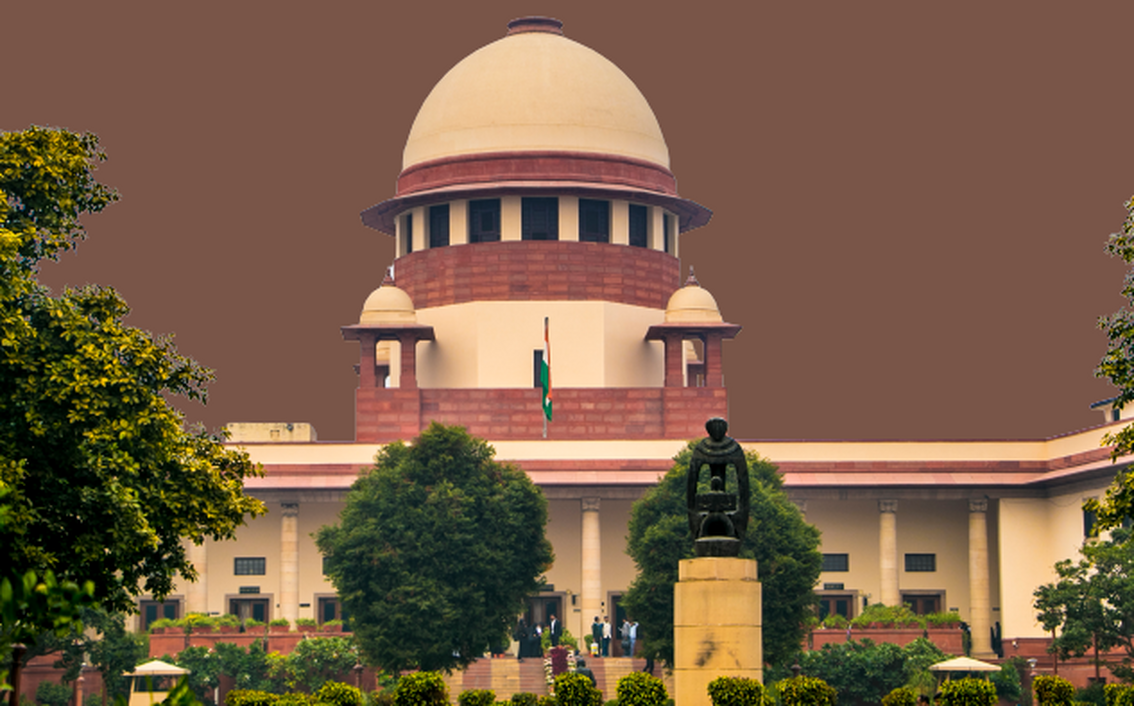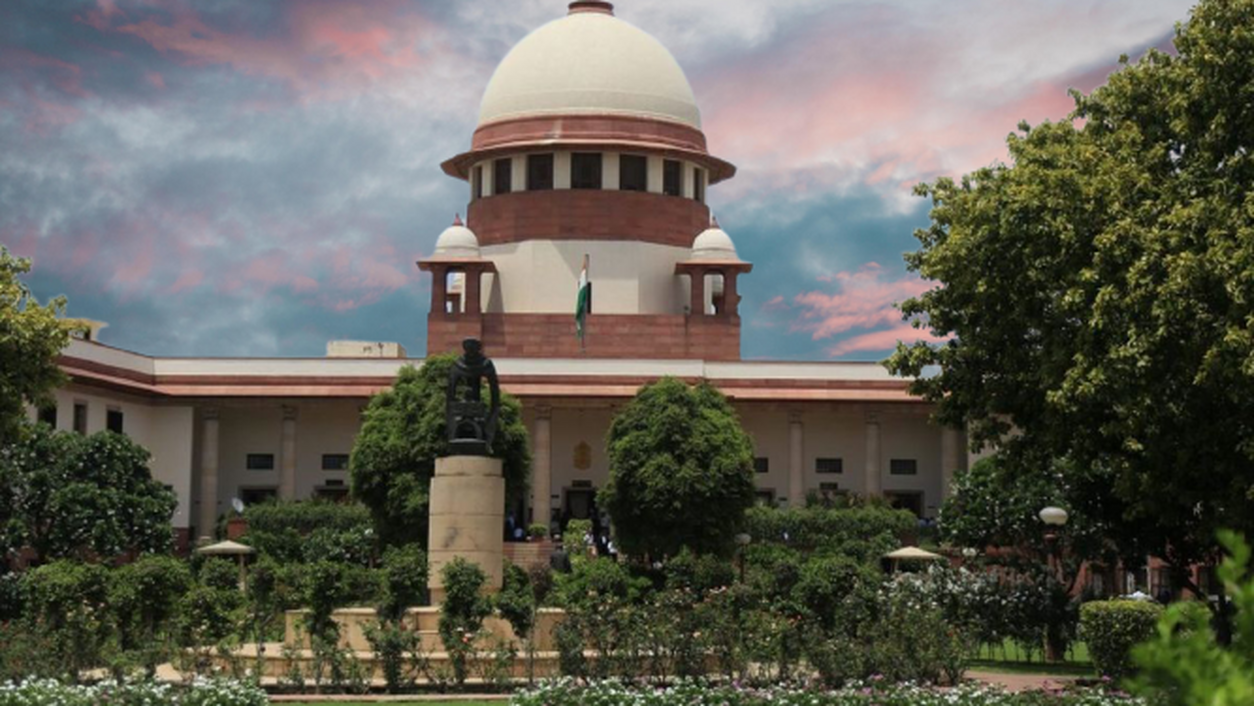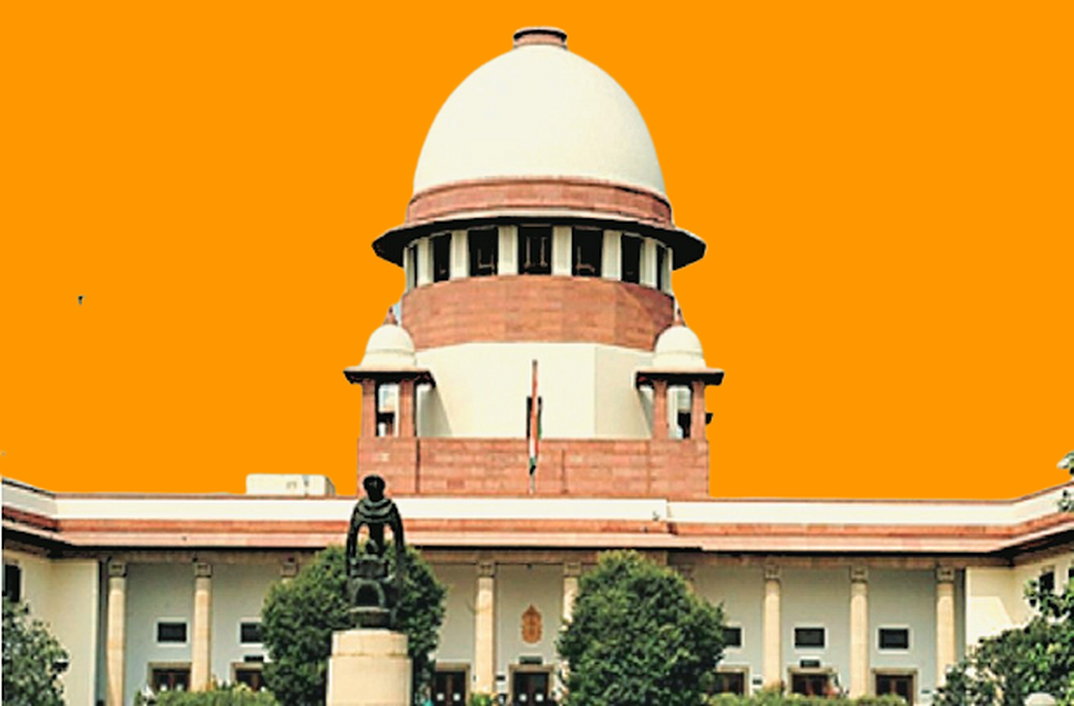Subsequent purchasers bound by lis pendens, cannot claim that they are bonafide purchasers because they were not aware of injunction order: Supreme Court
Justices Sudhanshu Dhulia & Prasanna B. Varale [03-05-2024]

Read Order: CHANDER BHAN (D) THROUGH LR SHER SINGH v. MUKHTIAR SINGH & ORS [CIVIL APPEAL NO. 2991 OF 2024]
LE Correspondent
New Delhi, May 9, 2024: While ordering that the agreement to sell be executed in favour of the appellant, the Supreme Court has clarified that even if Section 52 of Transfer of Property Act is not applicable in its strict sense in the State of Punjab then too the principles of lis-pendens, which are based on equity and good conscience, would certainly be applicable.
The facts leading to this appeal were that in the year 2002 appellant and respondent no. 3 entered an agreement to sell relating to sell a plot of land for a total consideration of Rs. 8 lakhs, where Rs. 2.50 lakhs was paid at the time of agreement and remaining Rs. 5.50 lakhs was to be paid at the time of execution of sale deed, which was to be executed.
After the agreement to sell but before the date of the execution of the sale deed the present appellant having received the knowledge that respondent no. 3 was likely to alienate the suit property, filed a suit for permanent injunction against respondent no. 3 where an order of temporary injunction was passed in his favour. On the very same day, respondent no. 3 executed a release deed in favour of his son, Harvinder Singh (respondent no. 4), for which mutation was also sanctioned.
Subsequent to the Release Deed, respondent no. 4, son of respondent no.3, executed a registered sale deed in favour of Mukhitar Singh and Baljeet Singh (respondent nos. 1-2) for the suit land.
The appellant then filed a suit for specific performance before the Additional Civil Judge as the defendant i.e. present respondent No.3 did not come forward even on the last day to execute the sale deed. The Trial Court decreed the suit of the appellant with costs and directed respondent no. 3 to accept balance sale consideration and execute the agreement to sell.
The appeal before the Top Court was filed by the appellant challenging the Judgement passed in a second appeal by the Punjab and Haryana High Court. The impugned judgment had reversed the concurrent findings of the trial court and the first appellate court and had consequently dismissed the suit of specific performance filed by the appellant-plaintiff, although a partial relief was granted to the appellant by return of the earnest money to the appellant, with interest.
The Division Bench of Justice Sudhanshu Dhulia and Justice Prasanna B. Varale placed reliance upon the judgments in Rajendra Singh v. Santa Singh [LQ/SC/1973/237] ; Dev Raj Dogra v. Gyan Chand Jain [LQ/SC/1981/144] ; Sunita Jugalkishore Gilda v. Ramanlal Udhoji Tanna [LQ/SC/2013/909] and said, “The object underlying the doctrine of lis pendens is for maintaining status quo that cannot be affected by an act of any party in a pending litigation. The objective is also to prevent multiple proceedings by parties in different forums. The principle is based on equity and good conscience.”
Though by virtue of Section 1 of the Transfer of Property Act, 1882 the provisions of the said Act are not applicable in the States of Punjab, Delhi or Bombay; subject, of course to certain exceptions. Yet, the Bench observed that in the case of Kanshi Ram v. Kesho Ram,, the Punjab and Haryana High Court has held that since the explanation to Section 52 is based on equity and good conscience this principle can be applied. “In short, there can be no doubt that even if Section 52 of T.P Act is not applicable in its strict sense in the present case then too the principles of lis-pendens, which are based on justice, equity and good conscience, would certainly be applicable”, it added.
Reference was made to Section 52 which clarifies that pendency of a suit shall be deemed to have commenced from the date on which the plaintiff presents the suit. Further, such pendency would extend till a final decree is passed and such decree is realized. It was noted that in this case, the suit for permanent injunction was filed prior to the execution of release deed. “Thus, since the release deed is executed after the suit for temporary injunction was filed by the appellant, the alienation made by respondent no. 3 in favour of respondent no. 4 would be covered by the doctrine of lis pendens”, the Bench held.
The appellant filed a suit for permanent injunction on 21.07.2003 and obtained an order of temporary injunction on 28.07.2003. The Bench explained that as on 21.07.2003 the doctrine of lis pendens would take its effect. The release deed executed by respondent no. 3 in favour of respondent no. 4 was of 28.07.2003, which was subsequent to the filing of the suit. Respondent no. 4 executed the registered sale deed in favour of respondents 1-2 on 16.06.2004 which was during the operation of the temporary injunction order. Thus, the alienation made by respondents, couldn’t operate against the interests of the appellant considering he had obtained an order of temporary injunction in his favour.
“We are going by the settled position that subsequent purchasers will be bound by lis pendens and cannot claim they are bonafide purchasers because they were not aware of the injunction order, looking at the peculiar facts of the present case”, the Top Court said.
According to the Bench, once it was held that the transactions executed by the respondents were illegal due to the doctrine of lis pendens the defence of the respondents 1-2 that they are bonafide purchasers for valuable consideration and thus, entitled to protection under Section 41 of the Act of 1882 was liable to be rejected.
Consequently, the Release Deed executed by respondent no. 3 in favour of respondent no. 4 and the Sale Deed executed by respondent no. 4 in favour of respondents 1-2 was held to be without any legal sanctity.
“There was an order of temporary injunction operating at the time when these transactions were made and the alienation made by the respondents cannot operate to the disadvantage of the appellant. Since the parties to these proceedings are bound by the doctrine of lis pendens the respondents 1-2 cannot take the protection of bonafide purchasers for valuable consideration”, the Bench held while allowing the appeal and upholding the decree in favour of the appellant.
The respondent no. 3 was also directed to accept the balance sale consideration of Rs.5,50,000 from the appellant and execute the agreement to sell in favour of the appellant, within 3 months.
Sign up for our weekly newsletter to stay up to date on our product, events featured blog, special offer and all of the exciting things that take place here at Legitquest.




Add a Comment